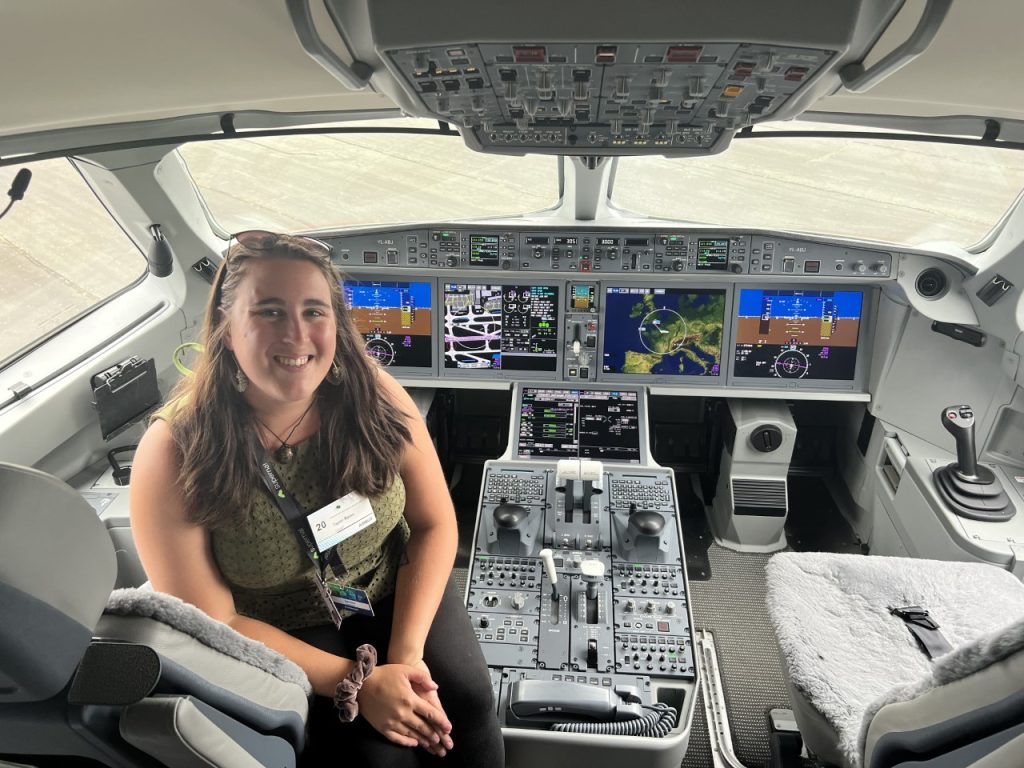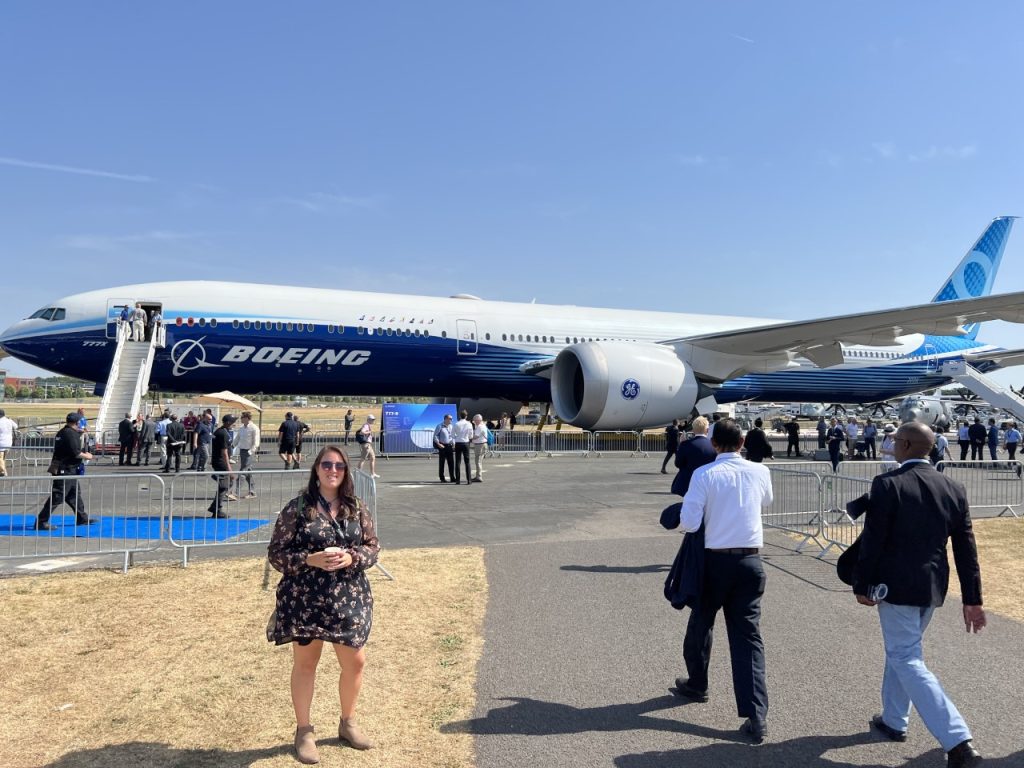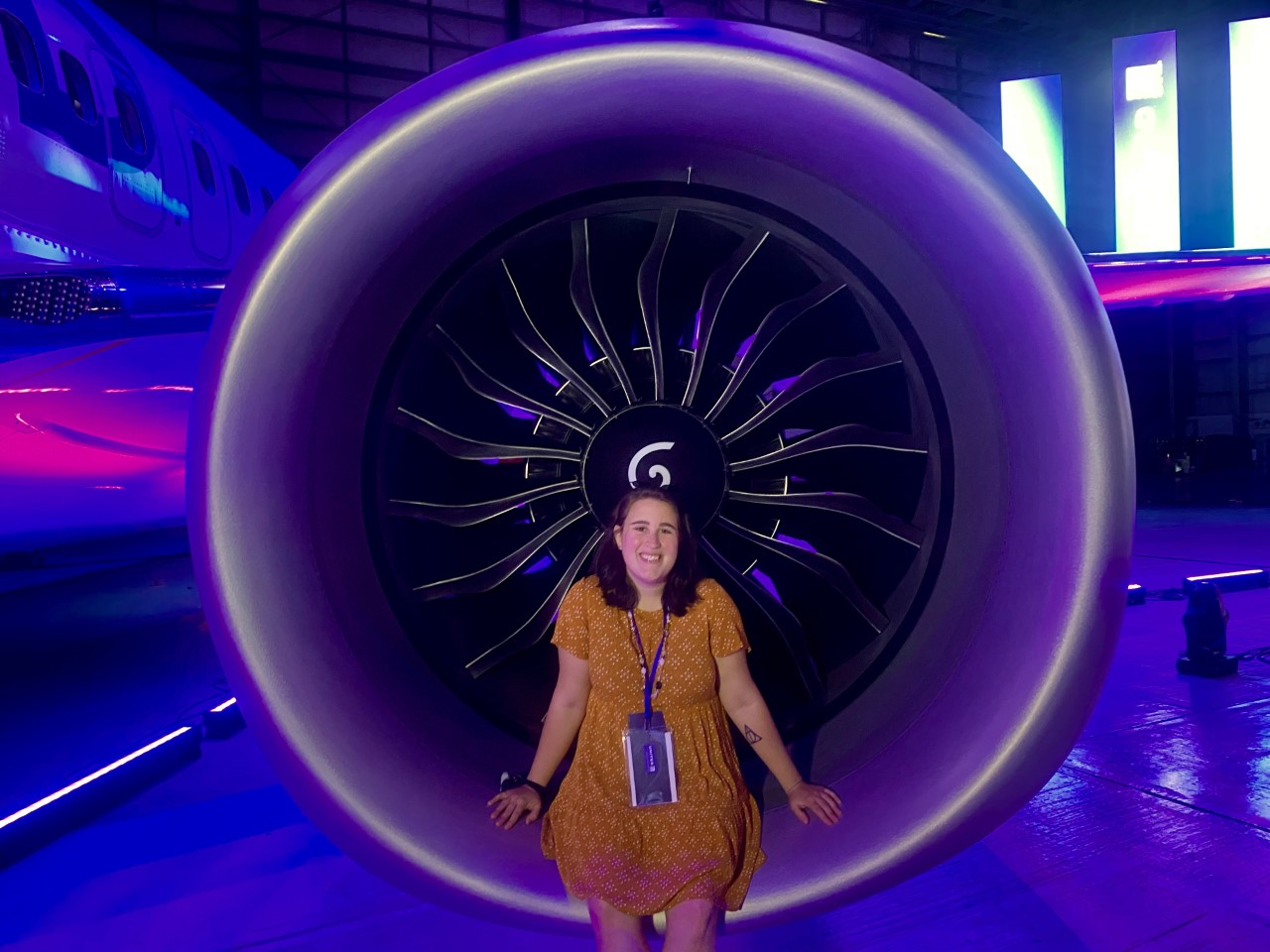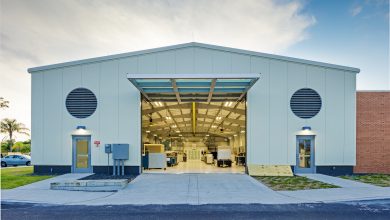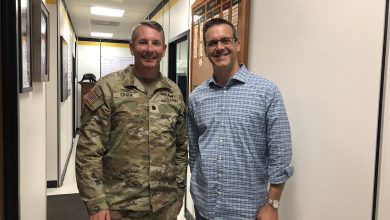Aeronautics Alumna Taylor Rains Talks Reporting for Insider, Her Love of Airports and the Importance of Networking
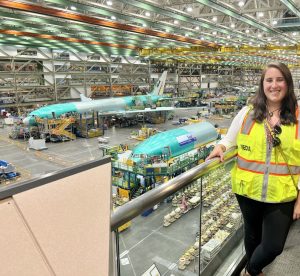
Taylor Rains ’17 has always had a passion for aviation.
“As a kid, I’d ask my mom to book flights with longer layovers so I’d have time to walk around and explore the terminals,” Rains says.
This eventually evolved with the influence of her grandfather—who worked for Northrop Grumman Corp. most of his life and took her to Blue Angels air shows—and her mother, who sent Rains to space camp for several summers.
Graduating in 2017 with a bachelor’s in aviation management, Rains interned for a short period with Southwest Airlines. After taking a gap summer, she became a safety specialist at Allegiant Air in 2018.
“In college, I took a big interest in safety and ended up doing internships and research in the field before joining Allegiant,” she says. “While I loved the company and the work, I found I was spending more time processing reports and completing risk analysis than I was exploring airports and airplanes—which is what I really wanted to do.”
After looking into other, more hands-on career paths, Rains found aviation journalism. It felt like a perfect fit, as she could review flights, get behind-the-scenes tours and even share her expertise on topics like the pilot shortage—her childhood dream come true.
“I started writing about aviation for an outlet called FlyerTalk in September 2018, which became my passion,” she says.
She built a freelance portfolio by writing for various outlets, including AirlineGeeks.com. In 2021, she took a fellowship with Insider Inc. and was hired as a full-time aviation reporter in 2022.
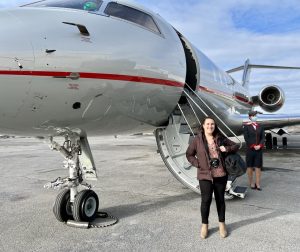
Rains credits her time at Florida Tech for giving her the base knowledge she needed for the job. While she graduated in aviation management, she initially pursued a civil engineering degree with the intention of designing airports.
However, she quickly realized she was not a huge fan of physics.
“Fortunately, Florida Tech is one of the few schools in the U.S. that I could simply switch to an aviation degree,” she says. “Honestly, I was shocked at how comprehensive Florida Tech’s program was. Instead of taking regular chemistry and physics—which I admit, aren’t my strong suits in a general sense—I was able to focus on these areas as they pertain to aviation specifically, which is something I excelled at.”
Rains also took courses such as airport design, aviation history and safety, all of which helped prepare her for niche areas of the industry.
“For example, because I took the coursework and understood certain FAA safety programs, I was able to land internships and jobs that favored candidates with that type of background knowledge,” she says.
We chatted with Rains to learn more about her, her favorite Florida Tech memories and her best advice for future and current Panthers. Read her responses below!
What did Florida Tech teach you? Any favorite memories?
On the education side, Florida Tech not only helped me learn the foundation of aviation theories and principles, but I was also given the opportunity to write. During my sophomore year, I took an interest in safety during Dr. Scott Winter’s Aviation Safety course, and he offered to let me help with some research. The study was on pilot mental health and stigmas toward pilots using antidepressants (this was shortly after the Germanwings crash in 2015, which was due to pilot suicide). As the only undergrad on the team, participating in the research taught me how to work at a higher level and communicate with industry professionals. I also gained a better understanding on how to approach writing about aviation topics.
On the social side, Florida Tech was a place I finally fit in. In high school, I was a proud “avgeek” who was obsessed with all things planes and space. But that meant I wasn’t exactly on the top of the social ladder. However, everyone had their unique interest at Florida Tech, and I no longer felt like I was the odd one out. I was part of Greek Life, as well, which is where I found most of my long-term friendships—most of which I still maintain five years after graduation.
What tips/advice do you have for future or current Panthers?
First, enjoy college while you’re there. I was laser-focused on getting through my coursework and doing as many internships and extra work as possible. This helped me graduate early and get some work experience under my belt, but I feel like I missed out on potential friendships or other unique college events. At the end of the day, it’s a balancing act, and I sometimes put work/study over life. It created a lot of unnecessary stress, and it’s why I took the gap summer after my Southwest internship to relax and reset before my first “big kid” job with Allegiant.
While I do encourage future and current Panthers to have fun, I do not recommend slacking off. Aviation is a hard program—and even more so if you’re on the flight track. Your first two years are going to be full of your introductory aviation classes, like meteorology, history and airspace, as well as business courses, like communication, economics and finance. Do well in these to give yourself a GPA cushion for when classes get much harder. Junior- and senior-level courses, like transportation logistics, airport management, aviation advanced computer systems and aviation business simulation (where you actually run your own airline), are going to require a lot of time and studying.
Any fun facts about yourself?
One personal fun fact is that I am actually marrying fellow Florida Tech alumnus Ryan Eberhardt [’19], who I met in college and is now an airline pilot for Republic Airways. We live in Connecticut with our 115-pound lab/dane mix, Indiana. A work fun fact is that I’ve traveled to eight countries across four continents on reporting trips for Insider. I’ve gotten to do a lot of unique things, like tour Boeing’s assembly line and its new 777X airliner, sleep in a retired Boeing 747 in Sweden and tour flight attendant and pilot training facilities in New Zealand and Singapore. In total, I’ve visited 44 countries and all seven continents between work and leisure.
Is there anything else you’d like to add?
My biggest advice for students is to network. This can be done at Florida Tech’s career fair or through aviation clubs, like CABE or Alpha Eta Rho. These connections can be valuable for career advice, and even job/internship opportunities. For example, when I started writing about aviation, I had zero journalism experience. I learned from my editors at FlyerTalk and AirlineGeeks, and I made friends along the way who taught me the ropes. One individual, named Thomas Pallini, was working for Insider when I was at AirlineGeeks. We met at a tour of JetBlue’s new Airbus A220 in New York and happened to exchange numbers. After a few more times chatting at work events and getting his advice on better ways to report on aviation, he asked me if I’d be interested in a fellowship at Insider. With his guidance and recommendation, I was hired—and eventually got full time. That contact really helped me take that leap from freelance to salaried employee.
